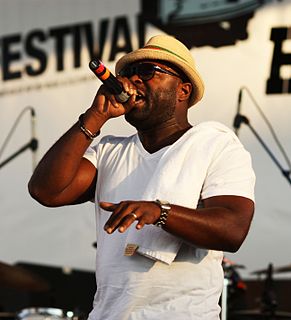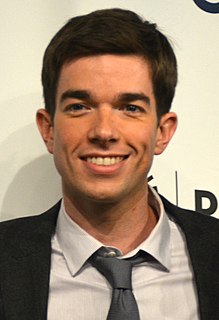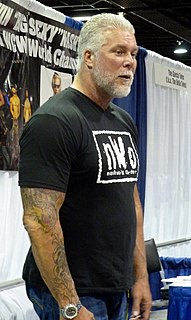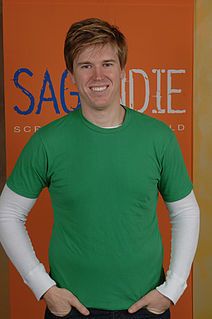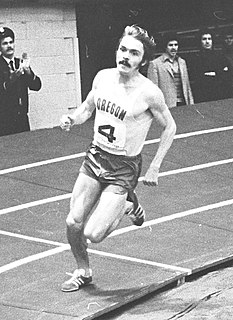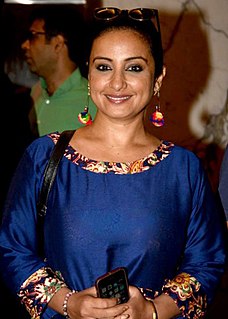A Quote by Black Thought
I'll read a book. I'll watch a documentary or a film or whatever. I'll go to an art exhibit and just try and open myself to influence.
Related Quotes
I have to try to watch myself and give myself feedback. People would take for granted that I was ready to go right away. And I would say, "No, no, no, no, I actually have to go talk to myself." Because I need to just take a minute to think about what just happened and tell myself what to do in the next take, so just give me two minutes to go be a director.
When I make a film, I don't watch a lot of other films. I read a lot; I try to read poems, things that can liberate my human condition, that make me go away... I spend a lot of the time doing nothing, just concentrating on the subject. Sometimes I'll sit in my chair for two or three hours without doing anything.
I'm one of those people who can't watch themselves do anything. I could never watch myself wrestle. I've probably watched a handful of my matches. I never could watch myself. Even when I played college basketball, I hated film days... 'Oh God, I'm gonna watch myself screw up.' I'm just one of those people who can't watch their work.
When you say documentary, you have to have a sophisticated ear to receive that word. It should be documentary style, because documentary is police photography of a scene and a murder ... that's a real document. You see, art is really useless, and a document has use. And therefore, art is never a document, but it can adopt that style. I do it. I'm called a documentary photographer. But that presupposes a quite subtle knowledge of this distinction.
For me, the goal is always to write a novel that I myself would like to read. People frequently ask me what my favorite book is, and in effect, there's always a capital-F Favorite, capital-B Book that I would like to write myself someday. I try to go for that ideal of writing the best, most entertaining, most beautifully written book that I possibly can.
If it's physical pain, you just deal with it the best way you can. But if it's more emotional, I don't know. I just try my best to feel it, take it in, and just allow myself to go through whatever may actually come from it. And then a certain amount of it, you can use to transform it through art, which is the healthy way of dealing with it, as well.
That is another chamber of my heart that shows no electrical activity - the chamber that used to flicker into life when I saw a film that moved me, or read a book that inspired me, or listened to music that made me want to cry. I closed that chamber myself, for all the usual reasons. And now I seem to have made a pact with some philistine devil: if I don't attempt to re-open it, I will be allowed just enough energy and optimism to get through a working day without wanting to hang myself.
Most people look at a feature film and say, "It's just a movie." For me there is no border or wall between fiction and documentary filmmaking. In documentaries, you have to deal with real people and their real feelings - you are working with real laughter, happiness, sadness. To try to reflect the reality is not the same as reality itself. That's why I think that making a good documentary is much harder than making a good feature film.
